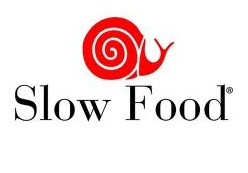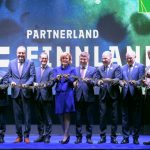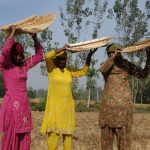
 The Founder of “Slow Food”, President Carlo Petrini concurs with papal encyclical calls for a change in life, production and consumption styles.
The Founder of “Slow Food”, President Carlo Petrini concurs with papal encyclical calls for a change in life, production and consumption styles.
The Vatican has released a document calling for a change in life, production and consumption styles.
The papal encyclical, available for sale from Famiglia Cristiana e Credere, is used by the Vatican to tackle specific issues, with the most recent focusing on climate change.
Entitled Laudato Si – Enciclica sulla casa commune (Praised be to you – Encyclical on our shared home) has been timed to coincide with Expo in Milan and the recent meetings held between the Pope and FAO delegates. What’s more, it highlights the importance of the next United Nations conference, taking place in Paris at the end of November, which will address climate change.
The Italian edition, published by Edizioni Paoline, features a reading guide written by Slow Food President Carlo Petrini. In his text Petrini praises and backs the call issued by the Pope:
“This encyclical is first and foremost a blunt but unbiased realization of the reality of our shared home, the Earth and its bounty. It is a crystal clear analysis about how much damage we have done to things and people by senselessly imposing our model of development, for which we have let our politics surrender to the economy, and the economy to technology.
The first part is a flawless, highly educational synopsis of the situation in which the world has found itself: pollution and climate change, water issues, the loss of biodiversity with the consequential deterioration of human quality of life, social degradation, and the spread of injustice in a sea of indifference and perceived helplessness.”
Through the document, Pope Francis expresses real concern for the Earth and the devastating impact man is having:
“Industrial waste and chemical products utilized in cities and agricultural areas can lead to bioaccumulation in the organisms of the local population, even when levels of toxins in those places are low. Frequently no measures are taken until after people’s health has been irreversibly affected.
These problems are closely linked to a throwaway culture that affects the excluded just as it quickly reduces things to rubbish. To cite one example, most of the paper we produce is thrown away and not recycled. It is hard for us to accept that the way natural ecosystems work is exemplary: plants synthesize nutrients which feed herbivores; these in turn become food for carnivores, which produce significant quantities of organic waste which give rise to new generations of plants…”
Later adding: “Humanity is called to recognize the need for changes of lifestyle, production and consumption, in order to combat this warming or at least the human causes which produce or aggravate it. It is true that there are other factors (such as volcanic activity, variations in the Earth’s orbit and axis, the solar cycle), yet a number of scientific studies indicate that most global warming in recent decades is due to the great concentration of greenhouse gases (carbon dioxide, methane, nitrogen oxides and others) released mainly as a result of human activity. Concentrated in the atmosphere, these gases do not allow the warmth of the sun’s rays reflected by the Earth to be dispersed in space. The problem is aggravated by a model of development based on the intensive use of fossil fuels, which is at the heart of the worldwide energy system. Another determining factor has been an increase in changed uses of the soil, principally deforestation for agricultural purposes.”
UN officials have praised the Pope and hope his use of language will catalyze an agreement on climate action.
Slow Food involves over a million of people dedicated to and passionate about good, clean and fair food. This includes chefs, youth, activists, farmers, fishers, experts and academics in over 158 countries; a network of around 100,000 Slow Food members linked to 1,500 local chapters worldwide (known as convivia), contributing through their membership fee, as well as the events and campaigns they organize; and over 2,500 Terra Madre food communities who practice small-scale and sustainable production of quality food around the world.
Tags: Pope and climate change











